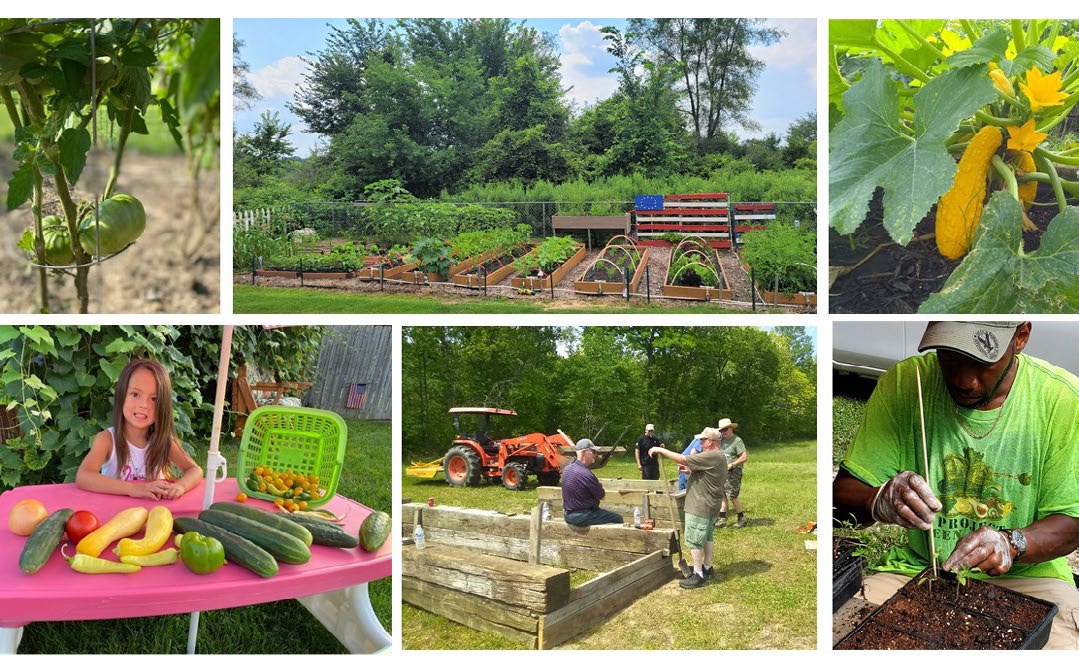
Helping Reduce Stress & Manage Mental Health
DOWNLOADJune 7, 2022 - Becky McKendry, Michigan State University Extension
Impacts
Mental health is just as important as physical health. Through evidence-based education, people can learn to manage the stressors in their life and improve their well-being. In 2021, MSU Extension’s social-emotional health programming helped adults across Michigan learn how to reduce stress, practice mindfulness, and strengthen their families’ and communities’ understanding of and response to mental health crises. Of the participants surveyed:
- 93% reported that they were confident in having a supportive conversation with anyone about mental health or substance use challenges.
- 94% reported they felt highly confident that they understood the benefits of mindfulness.
- 93% reported they felt highly confident they knew how to use mindful breathing to reduce stress.
- 1,018 individuals received MSU Extension mental health resources tailored to veterans either online or at community events for veterans.
- 7,309 essential workers participated in online workshops to learn ways to manage stress.
- 336 people completed online Mental Health First Aid trainings offered by MSU Extension in 2021.
Priority Areas
- Increasing access to programming through online learning platforms.
- Supporting social and emotional health of essential works.
- Building awareness of stress and mental health.
- Understanding the benefits of mindfulness and mindfulness practices for overall health.
- Empowering people to intervene in a mental health crisis.
- Connecting military veterans and service providers with mental health resources.
"The most interesting for me was realizing that I could do so much more for myself that would help me in lowering my stress." —Participant in MSU Extension mental health programming
To support mental health and stress reduction programming, contact Cheryl Eschbach at cheryl@msu.edu. To bring social and emotional health programming to your community, contact Holly Tiret at tiret@msu.edu, Carly Sandoval (Mental Health First Aid; glunzcar@msu.edu), or Kai Gritter (Veterans SNAP Outreach; grittern@msu.edu).

Gardening Improves Veteran Well-Being
In 2021, MSU Extension’s SNAP Outreach for Veterans team shared over 40,000 USDA-funded vegetable seed packets with veterans statewide. The giveaways promoted the Supplemental Nutrition Assistance Program (SNAP), which addresses food insecurity, and sought to increase veterans’ health and wellness through gardening.
Gardening offers many benefits to veterans, such as providing healthy food, instilling a sense of self-reliance and creating a connection with the land. That connection can provide many therapeutic and mental health benefits, such as stress relief, mental clarity and feelings of reward.
According to the U.S. Department of Veterans Affairs (VA), veterans involved in gardening or horticultural therapy tend to have reduced inflammation levels, lower levels of stress hormones, and increased mental well-being. Veterans who received seeds shared that they loved growing produce, enjoyed working together on gardening projects and relished the opportunity to share their harvest with their communities.
As one partner said, “It was such a hit and brought so much joy . . . the veterans needed this.”
"I enjoyed this course and got a lot out of it—both personally and professionally." —DTE Mental Health First Aid Trainee
Supporting Essential Workers Through Online Lunch & Learns
In 2021, MSU Extension offered a series of online lunch and-learn workshops to offer support and guidance to and help build a sense of community among essential workers, caregivers and parents. The sessions helped participants learn to increase their resilience and manage stress through:
- Practicing mindfulness
- Getting quality sleep
- Cultivating healthy relationships
- Understanding the connection between a healthy mind and healthy body
Participants learned how to create a relaxing environment to be mindful and present, which they looked forward to during their busy weeks.
Attendance ranged from 50 to 200 people per session. Participant feedback indicated that the time spent together in this remote learning community enabled them to adapt to new ways of being and to overcome challenges instead of feeling overwhelmed and unable to navigate their stress. Participants shared how valuable the experiences were to them:
- “Starting the week here reminds me that all the things on life’s to-do list are there, but one thing at a time and I’m learning to ask for help.”—Participant
- “Definitely feeling not alone is a huge part of staying mindful . . . knowing others are going through stress, too.”—Participant
- “Going to use the mindful breaths and movements to help calm down those crazy moments at work.” —Participant

Equipping Partners with Suicide Prevention & Crisis Intervention Techniques

When someone is in distress, a quick and compassionate response is just as important for the person’s mental health as it is for their physical health. MSU Extension’s trained facilitators use the Mental Health First Aid (MHFA) program to help participants learn to offer that quick and compassionate response to people who may be experiencing a mental health challenge or crisis.
The MHFA program was developed by the National Council for Mental Wellbeing. It is an evidence-based, all-day training on how to help someone who is developing or experiencing a mental health challenge or crisis. The program helps trainees identify, understand, and respond to signs of mental illness and substance use disorders. MHFA conveys to community members a positive, recovery, resiliency, and strengths-based message.
Since 2017, MSU Extension has certified more than 1,250 people in MHFA—its own employees and participants from Michigan-based partner organizations. In 2020, MSU Extension began offering MHFA training online with two components: a two-hour self-paced course and an all-day instructor-led course. In 2021, the MHFA team continued to adapt, both to updates to the MHFA system and to the needs of the community, by bringing on three new trainers. Having a larger team of trainers helped the program thrive. By the end of 2021, the team was offering up to three trainings a week.
In 2021, MSU Extension reached a variety of partners, from library professionals and college advisors to an array of employees in the corporate workforce. The organization’s largest partnership in 2021 was with DTE Energy’s employee health and wellness program, which offered five MHFA trainings to 70 of the company’s Energize Your Life (EYL) Well-being Champions. These employees came from departments and positions throughout the company. They are passionate about health and about helping shape a healthier physical, mental, social and financial culture at DTE Energy.
The MHFA training led by MSU Extension helped the EYL Well-being Champions develop the knowledge and tools they need to assist someone experiencing a mental health challenge, on and off the job.
One of the basic tools attendees are reminded of throughout MHFA training is the ALGEE action plan. ALGEE stands for:
- Assess for risk of suicide or harm.
- Listen non-judgmentally.
- Give reassurance and information.
- Encourage appropriate professional help.
- Encourage self-help and other support strategies.
After completing the MHFA course, 99% of DTE Energy trainees reported that they would likely or very likely use the ALGEE action plan to connect an adult experiencing signs and symptoms of a mental health or substance use challenge or crisis to appropriate help or resources. With MHFA certification, the EYL Well-being Champions play a vital role in helping DTE Energy become a benchmark company in employee health and well-being. The partnership between MSU Extension and DTE Energy will continue with MHFA training for more EYL Well-being Champions and other groups in 2022.



 Print
Print Email
Email




